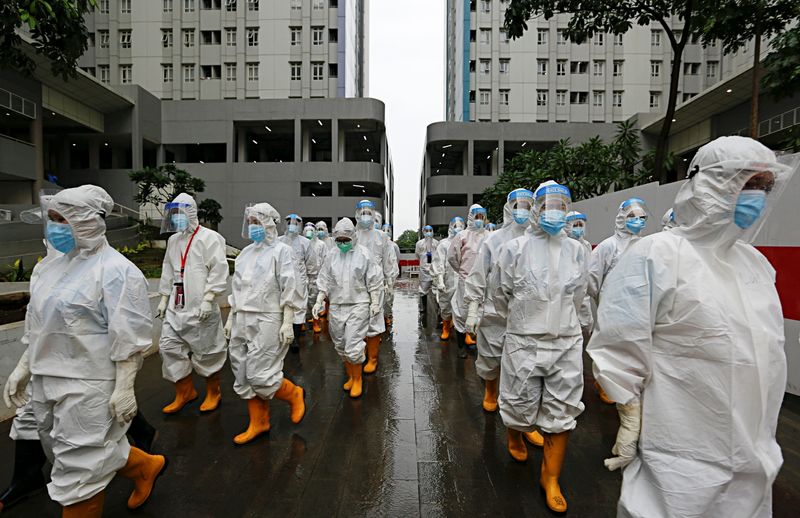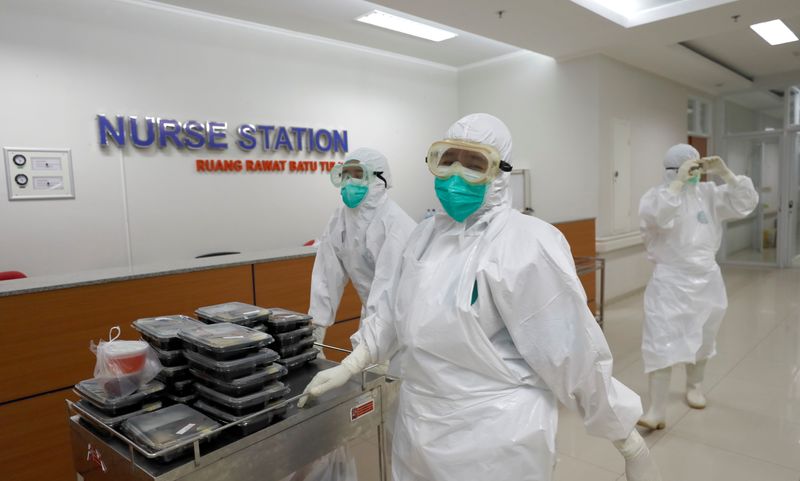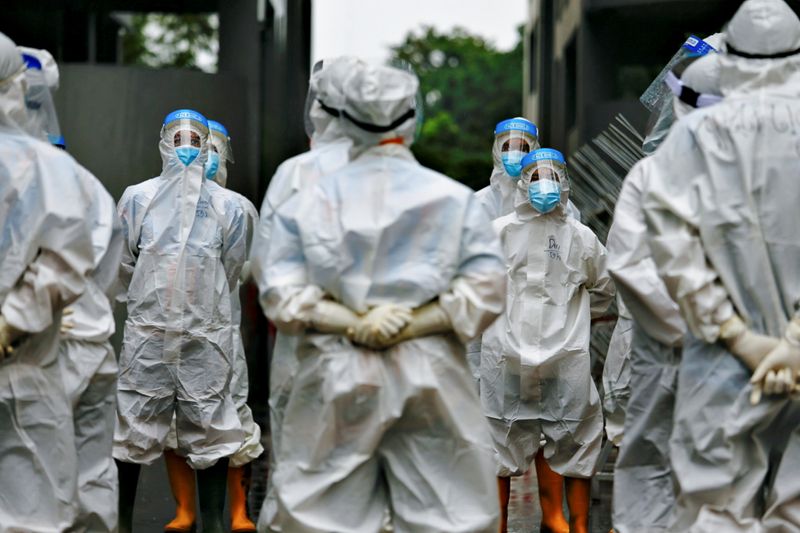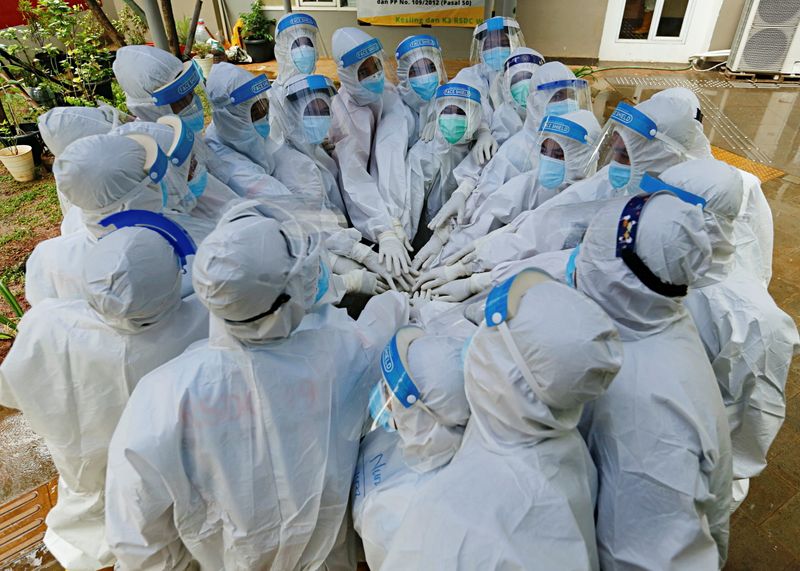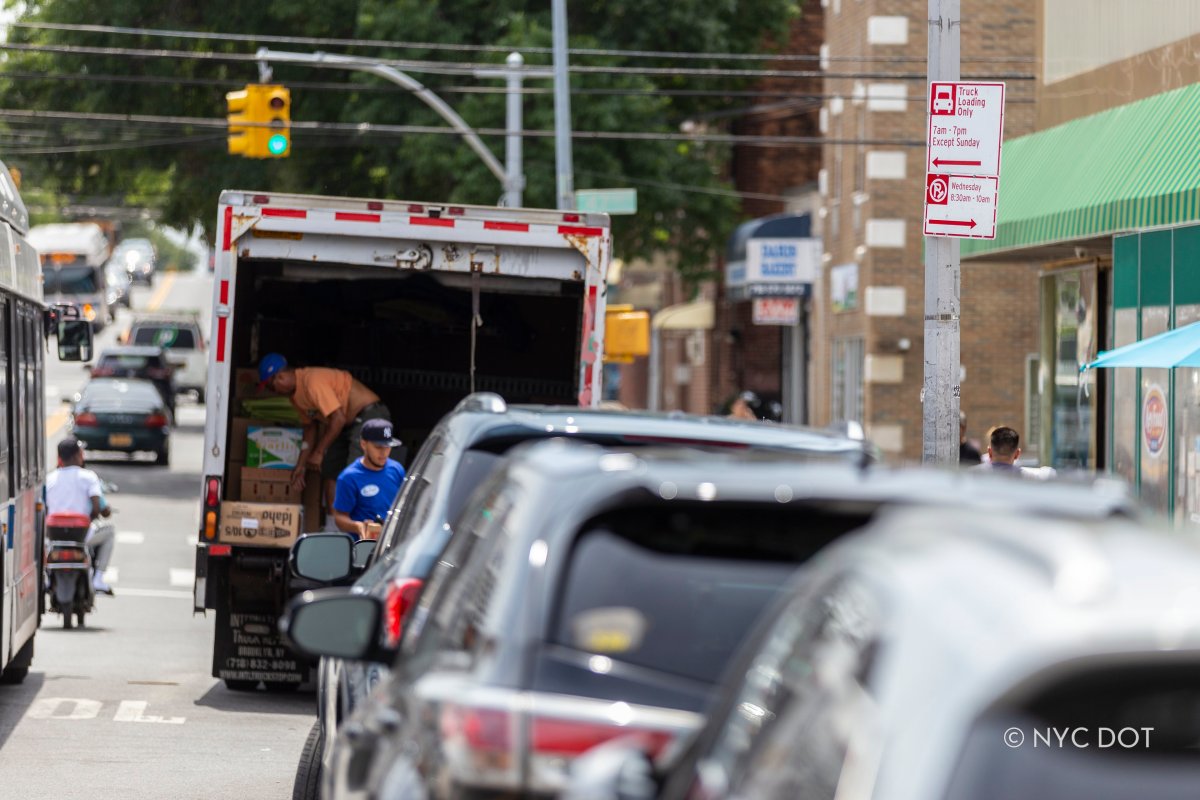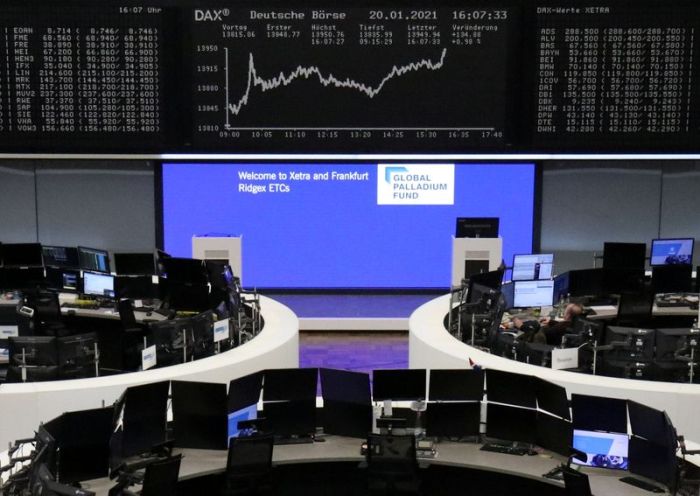JAKARTA (Reuters) – Indonesia surpassed a million confirmed coronavirus cases on Tuesday, a grim milestone for the Southeast Asian nation that has struggled since last March to get its COVID-19 epidemic under control.
The world’s fourth-most-populous country has recorded 1,012,350 cases, with the average daily increase running above 11,000 for more than a week, according to official data.
Its deaths from the respiratory disease now total 28,468.
Those figures are among the highest in Asia and almost double the number of infections as its neighbour the Philippines, which up until October was reporting more cases than Indonesia.
Health experts believe the true spread of the virus in Indonesia could be three times higher.
Authorities have been criticised for low testing and tracing rates, and for focusing vaccines at the expense of better enforcing health protocols, which are less strict than in most countries.
Health Minister Budi Gunadi Sadikin said improvements would be made in containing the virus and urged the public to follow regulations.
“We need to flatten the curve … so our health facilities don’t have too much burden and thus we could have more time to respond to this virus,” he told a news conference.
The government started its mass vaccination programme earlier this month and tightened movement restrictions, as hospitals come under increasing strain, with dozens of people turned away from facilities in Jakarta at full capacity.
Social restrictions, which include shortened hours for malls and restaurants in Java and Bali, will run until Feb. 8, as will while entry restrictions on most foreign visitors.
Student Muhaimin Zega, 20, called on the government to issue clearer regulations, while 42-year-old Jakarta resident Sabriyanti said rules needed to be more stringent.
“The government should be stricter because we still can see crowds and those who don’t wear masks,” said Sabriyanti, who uses only one name.
Others in the world’s largest Muslim-majority nation have chosen to put their faith in quelling the virus elsewhere.
“If we believe that COVID will attack it will,” said Taufik Hidayat, 49, a private sector worker.
“But if we are sure that COVID will not attack and we surrender to God, we will definitely not get it.”
(Additional reporting by Maikel Jefriando; Reporting by Yuddy Cahya Budiman, Gayatri Suroyo, and Stanley Widianto; Editing by Stephen Coates, Martin Petty)

